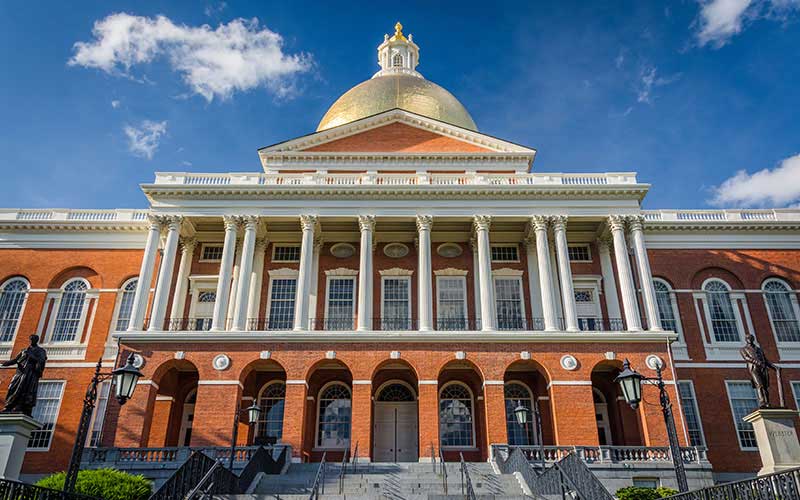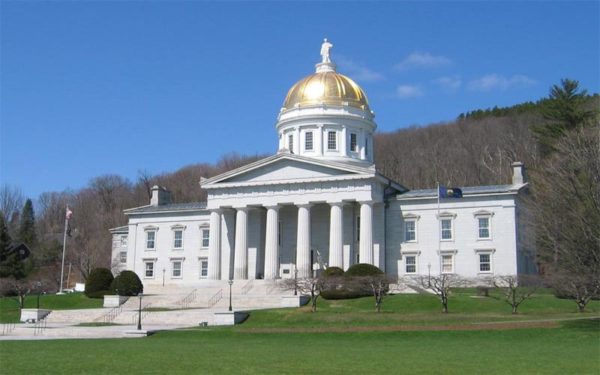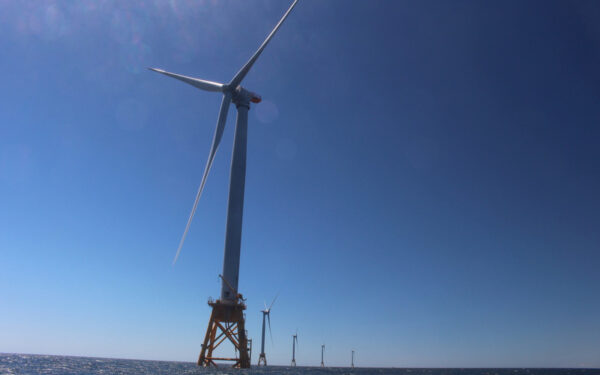
A new state law will ensure Massachusetts lowers its polluting emissions and empowers historically marginalized communities in the process. Photo Credit: Jon Bilous via Shutterstock
Massachusetts is already experiencing the effects of climate change. Heavier rainstorms that flood neighborhoods and city streets, increased heat that makes the Commonwealth attractive to illness-carrying ticks and mosquitos, and sea level rise that batters coastal homes and can send them sliding into the ocean.
While some areas are insulated by generational wealth, many neighborhoods – particularly low-income, Black, and immigrant communities – are on the front lines. These communities are hit first and worst by climate impacts, while at the same time being denied an avenue to really influence what happens in their own neighborhoods.
We couldn’t go on with business as usual. So, our legislature took action to ensure we lower the emissions that cause climate change and keep everyone in the Commonwealth safe from the most devastating climate impacts. They passed a critical climate and environmental justice bill that updates our existing climate law and adds protections for historically marginalized communities.
Early Progress on Climate Faltered in the Commonwealth
For more than a decade, we’ve worked to put strong, enforceable climate legislation on the books in Massachusetts.
As a result of CLF’s advocacy, Massachusetts passed the Global Warming Solutions Act in 2008. As one of the first climate laws in the country, it required the state to lower its climate-damaging emissions to at least 80% below 1990 levels before 2050. When the Commonwealth failed to take action to reach the targets outlined in the law, we took them to court. The Massachusetts Supreme Court stood by the Solutions Act, stating that the Commonwealth had to follow through.
But now that law is out of date. The climate crisis has worsened since 2008. Scientists say we must drop our emissions to zero before 2050 to avoid the worst impacts of climate catastrophe. Reaching this critical mark requires concrete plans – both for lowering emissions and for ensuring the state doesn’t repeat old patterns of harm to front line communities.
While Governor Baker updated Massachusetts’s emissions targets in early 2020, declaring a goal of net-zero by 2050, he hadn’t yet committed to a plan to get to 2050 while prioritizing and empowering our most disenfranchised communities.
Massachusetts Finally Updates Its Climate Law
To bring the law in line with the latest science and ensure the state stays on track, CLF and our partners pushed Massachusetts to update the Global Warming Solutions Act. Originally called the 2050 Roadmap Bill, this update added interim targets to the Solutions Act, offering a guide for reaching net-zero emissions by 2050.
It also included language that writes critical environmental justice protections into law – giving decision-making power back to historically sidelined communities. State policy traditionally puts low-income, Black, and immigrant communities in harm’s way and overburdens them with pollution. The new law makes it easier for people from these communities to weigh in on newly proposed projects – such as substations and power plants – that affect their neighborhoods.
The newly passed climate law – originally vetoed by Governor Baker – not only ensures Massachusetts will transition to a clean energy economy, but that no one is left behind in the process.
Next Steps: Implementing a Just Transition
Passing this law was a great first step. Now, Massachusetts must implement it.
The Commonwealth has already started crafting a Clean Energy and Climate Plan for 2030. With new targets on the books, state agencies must update this climate plan with a focus on frontline communities and then immediately work to implement it. Transitioning to a clean energy economy will benefit people throughout the state. From new jobs in the clean energy sector to lower air pollution, if Massachusetts gets this right, everyone stands to gain.
CLF advocates will also be in the thick of it, weighing in on the state’s climate plan and keeping an eye on the Baker administration to ensure they make these new goals a reality. And, with this law now on the books, we’re preparing to focus on additional environmental justice issues, plastic waste, and climate resilience.
Stay tuned for further updates. We couldn’t have done this without you – I look forward to working together to push Massachusetts even further on climate action and environmental justice through clean energy.




